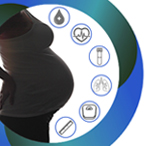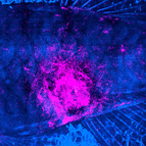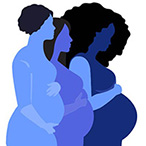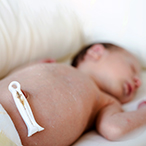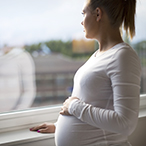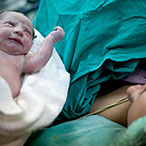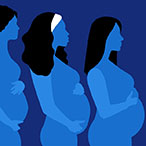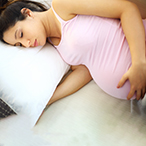Understanding and addressing a wide range of women’s gynecological and reproductive health issues are priorities for NICHD. Through research, the institute seeks to support and optimize the health of women throughout their lives.
News
NICHD issues News Releases and Media Advisories to the news media. Spotlight and Research Feature articles explain NICHD research findings and public health issues to the general public. An Item of Interest is a short announcement of relevant information, such as a notable staff change.
Release: NIH announces prize winners in year-long challenge to develop fetal diagnostic and monitoring technologies
NIH has announced winners of its competition to accelerate the development of diagnostic and monitoring technologies to improve fetal health outcomes.
Spotlight: Scientific Advances from the Division of Intramural Research
The Division of Intramural Research provides fundamental knowledge about the nature and behavior of living systems through basic, clinical, and population-based research.
Release: NIH announces winners of prize competition to improve postpartum maternal health and health equity through innovative diagnostics
Eight winning teams developed home-based and point-of-care diagnostics, wearables and other accessible technologies to
improve postpartum health outcomes in regions that have limited access to maternity care.
Item of Interest: NIH announces final winners of the Connecting the Community for Maternal Health Challenge
NIH announced the final winners of a 2-year prize competition that encouraged community-based organizations to develop the infrastructure and capabilities to conduct maternal health research.
Release: Umbilical cord milking does not appear to increase risk of neurodevelopmental delay in non-vigorous infants
Umbilical cord milking, a technique to move blood from the umbilical cord to an infant’s body, does not increase the risk for neurodevelopmental disabilities in non-vigorous term infants—those who are limp, pale and with minimal breathing. The technique provides an alternative for delayed cord clamping for when resuscitation efforts are needed as soon as possible.
Media Advisory: AI model has potential to detect risk of childbirth-related post-traumatic stress disorder
An AI program has the potential to identify signs of childbirth related post-traumatic stress disorder by evaluating short narratives of patients who have given birth. With further refinements, the program could potentially identify a large proportion of those at risk.
Item of Interest: NIH awards interim prizes in fetal diagnostic and monitoring technology competition
NIH has announced finalists in its competition to accelerate the development of diagnostic and monitoring
technologies to improve fetal health outcomes.
Science Update: NIH-funded study suggests best ways to screen for sepsis during and after pregnancy
Sepsis screening tools designed to account for the physiological changes that may occur during pregnancy perform best from 20 weeks of pregnancy through 3 days postpartum, research suggests. In early pregnancy and later in the postpartum period, tools based on general sepsis screening criteria may more accurately predict which patients are at high risk for maternal sepsis, a leading cause of pregnancy-related deaths.
Media Advisory: NIH-supported researchers create single-cell atlas of the placenta during term labor
An atlas of the placenta developed by NIH researchers offers insight on the communication that occurs between maternal and fetal cells during labor and delivery.
Science Update: Questionnaire could identify emotional responses leading to PTSD after childbirth, NIH-funded study suggests
A questionnaire detecting strong emotional responses to traumatic births could help identify new mothers at risk for developing childbirth-related post-traumatic stress disorder. It may lead to faster diagnosis—and treatment—of post traumatic stress disorder in new mothers.
Director's Corner: Reflecting on a Productive 2023
In 2023, NICHD continued its commitment to research to understand human development, improve reproductive health, promote women’s health, enhance the lives of children and adolescents, and optimize abilities for all. Highlights include steps toward reducing the global burden of maternal sepsis and establishing a standard treatment for opioid-exposed newborns.
Spotlight: Looking Back on NICHD in 2023
As we ring in 2024, we’d like to take a brief look back on our accomplishments during 2023. These activities illustrate the institute’s continued commitment to research and training in its mission areas.
Science Update: Questionnaire may detect childbirth-related posttraumatic stress disorder, NIH-funded study suggests
An early study suggests that a questionnaire can detect posttraumatic stress disorder (PTSD) after childbirth with high probability. If large-scale studies verify its effectiveness, the questionnaire could provide a rapid and efficient method for postnatal PTSD screening, allowing timely referral for a thorough assessment and treatment.
Item of Interest: NICHD and CDC Partner on Healthy Native Babies Project
This collaboration will promote safe infant sleep with and within American Indian and Alaska Native communities.
Release: NIH launches $2 million prize competition to spur innovation in fetal diagnostic and monitoring technologies
NIH will award up to $2 million in cash prizes as part of its Fetal Monitoring Challenge to accelerate development of diagnostic and monitoring technologies that improve fetal health outcomes in low-resource settings. U.S. scientists, engineers, and clinicians can submit innovative approaches and compete for prizes and resources to support technology development and clinical impact, with a focus on point-of-care and home-based diagnostic and monitoring technologies that may reduce fetal health risk and loss during and after birth.
Release: NIH establishes Maternal Health Research Centers of Excellence
NIH has awarded $24 million in first-year funding to establish Maternal Health Research Centers of Excellence. The centers will develop and evaluate innovative approaches to reduce pregnancy-related complications and deaths and promote maternal health equity.
Media Advisory: Cervical pessary no more effective than usual care in preventing preterm birth risk
A device known as a pessary, thought promising for reducing preterm birth risk due to a short cervix, appears no more effective than usual medical care, according to a study funded by the National Institutes of Health. A pessary is a rounded silicone device that fits around a cervix that has shortened, to keep it from opening and leading to miscarriage or preterm birth. The device is typically removed before the 37th week of pregnancy.
Science Update: Prenatal depression may increase risk of cardiovascular disease after birth, NICHD-funded study suggests
Depression from six weeks gestation through the end of pregnancy may increase the risk of heart and blood vessel disease up to two years after birth, suggests an analysis funded by the National Institutes of Health.
Item of Interest: NICHD-Developed Guide Sets Framework to Link Maternal, Infant Health Data
A new guide developed by NICHD and its partners promises to standardize the exchange of clinical data on maternal and infant health. The guide is an important step toward establishing a common framework to help clinicians and scientists better understand the root causes and high rates of maternal morbidity and mortality.
 BACK TO TOP
BACK TO TOP

